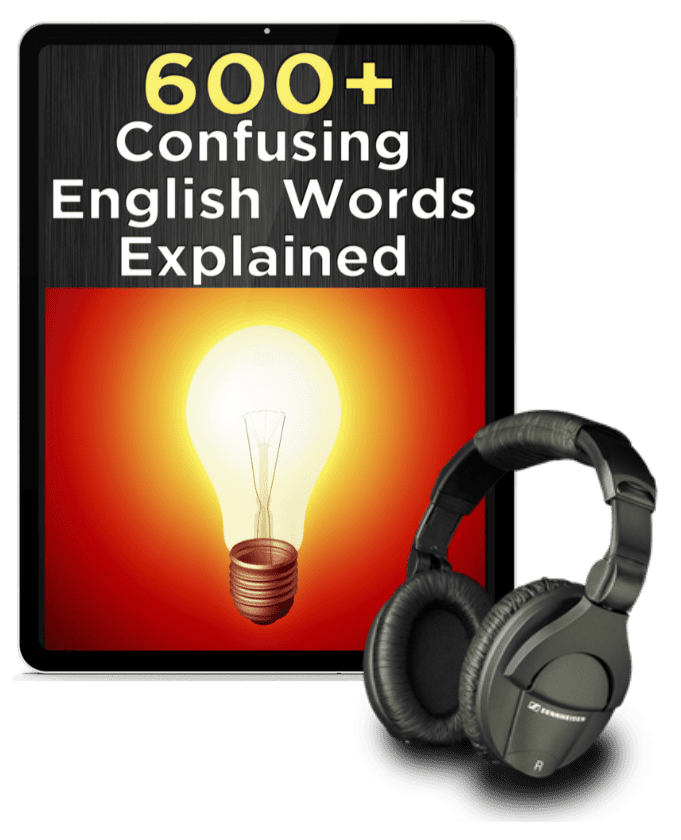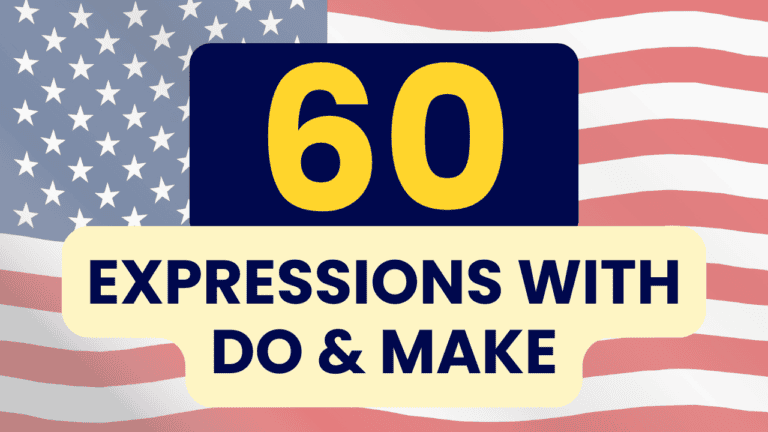
Do you ever use the wrong word in English? It’s a very common problem – and it affects students at all levels, from beginner to intermediate to advanced.
Using the wrong word is especially common when the two words appear very similar – like “interfere” and “intervene” or “relation” and “relationship” – or when they seem to have the same meaning, like “problem” and “trouble” or “staff” and “employees.”
Today I’m going to teach you the differences between all these super-confusing words I just mentioned, as well as a few more.
If you want to continue learning, make sure to get a copy of my e-book 600+ Confusing English Words Explained – so that you can clearly understand the words that many people mix up.
OK, let’s start with the verbs deny and refuse.
deny / refuse
deny – say something is not true, or say that you did not do something
The teenager denied stealing the DVDs from the store.
refuse – NOT do something, or say firmly that you will not do something
The employee was fired after he refused to do what the manager asked.
Note that after deny we always use the -ing form, and after refuse we always use the “to” form.
afraid / scared / frightened
When in the passive voice – after the verb “to be” and before “of” – you can use afraid or scared with no change in meaning.
She’s afraid of spiders.
She’s scared of spiders.
However, when used in the active voice, you can use only scared or frightened:
The loud noise scared me.
The loud noise frightened me.
You can also describe something that causes fear as scary or frightening:
It was a scary experience.
It was a frightening experience.
staff / employees
Both of these words refer to people who work at a company. But staff is always singular and uncountable – it describes the entire group of workers as one thing. Employees is countable and plural – it describes the collection of individual workers.
The entire staff was happy about the extra day off.
All the employees were happy about the extra day off.
Whenever you use a specific number, use employees or staff members:
Thirty employees received raises.
Thirty staff members received raises.
Thirty staff received raises.
interfere / intervene
Interfere has a negative connotation; it is when someone/something affects a situation, and you don’t want it to:
I wish my mother would stop interfering in my life!
Intervene has a more positive connotation; it is when someone/something affects a situation in a good way:
Bob and Joe were about to start fighting, but Pam intervened and calmed them down.
problem / trouble
Problem is countable, and trouble is usually uncountable:
I’m having a problem with the computer.
I’m having trouble with the computer.The bad internet connection caused problems for the students.
The bad internet connection caused trouble for the students.We have two major problems.
We have two major troubles.
Trouble can also be used as a verb:
These test results are troubling me. (making me worried)
relation / relationship
Relationship can describe a connection between two people (it can be romantic or not):
I’ve been dating my boyfriend for three years. We have a great relationship.
He has a terrible relationship with his father.
Both relationship and relation can describe connections between two things:
I’m studying the relationship between education levels and poverty.
There’s a close relation between smoking and lung disease.
The word relations (plural) is used with general connections in a specific category: international relations, diplomatic relations, race relations, etc.
suppose / supposed to
The word suppose means something like think, believe, imagine, or expect:
He’s not answering his cell phone. I suppose he’s already gone to bed; after all, it’s midnight.
The expression supposed to means something should be done, but it was not (or is not usually) done:
I was supposed to go to work today, but I’m sick so I stayed home.
We’re supposed to park our cars in the company garage, but most people just park on the street.
switch / change
The word change means for something to become different. The word switch is more specific – it means to stop using/doing one thing and start using/doing another.
I’m going to change a few things in my life this year.
Could you switch seats with me, so that I can sit next to my husband?
(the two people will exchange seats)
Her personality has changed a lot recently.
I wasn’t happy with my Nokia cell phone, so I switched to a Samsung.
(I stopped using the Nokia and started using the Samsung)
I hope this lesson has helped clarify these super-confusing words!
Learn more: wonder vs. wander
If you have any words that confuse you, let me know and I’ll add them to my list for a future lesson.
But you might find many of your questions answered inside my 600+ Confusing Words E-Book. You can see exactly what’s covered in that e-book when you click on this list of all 600 words you’ll learn. That’s all for now – thanks for watching!










